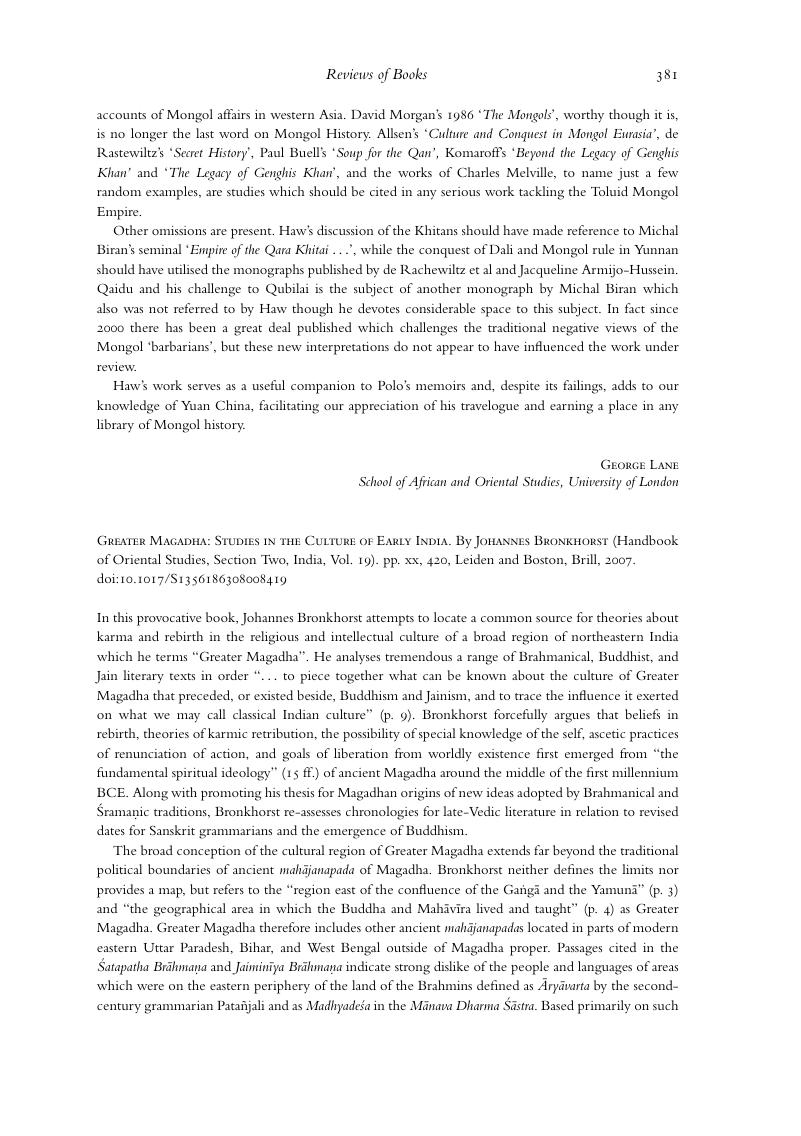Article contents
Greater Magadha: Studies in the Culture of Early India. By Johannes Bronkhorst (Handbook of Oriental Studies, Section Two, India, Vol. 19). pp. xx, 420, Leiden and Boston, Brill, 2007.
Published online by Cambridge University Press: 17 July 2008
Abstract

- Type
- Book Review
- Information
- Copyright
- Copyright © The Royal Asiatic Society 2008
References
1 In Imagining Karma: Ethical Transformation in Amerindian, Buddhist, and Greek Rebirth (Berkeley/Los Angeles and London, 2002), Obeyesekere discusses theories for the non-Vedic origin of karma theories, but concludes: “I think it reasonable to ignore the problem of origins owing to the methodological impossibility of finding them . . .” (p. 14). Bronkhorst, on the other hand, believes that philological methods can be employed to solve the ‘problem of origins’ but the results are not decisive.
2 Olivelle, Patrick, Upaniṣads (Oxford and New York, 1996)Google Scholar, remarks “. . . in reality, any dating of these documents that attempts a precision closer than a few centuries is as stable as a house of cards” (p. xxxvi).
A correction has been issued for this article:
- 2
- Cited by
Linked content
Please note a has been issued for this article.


